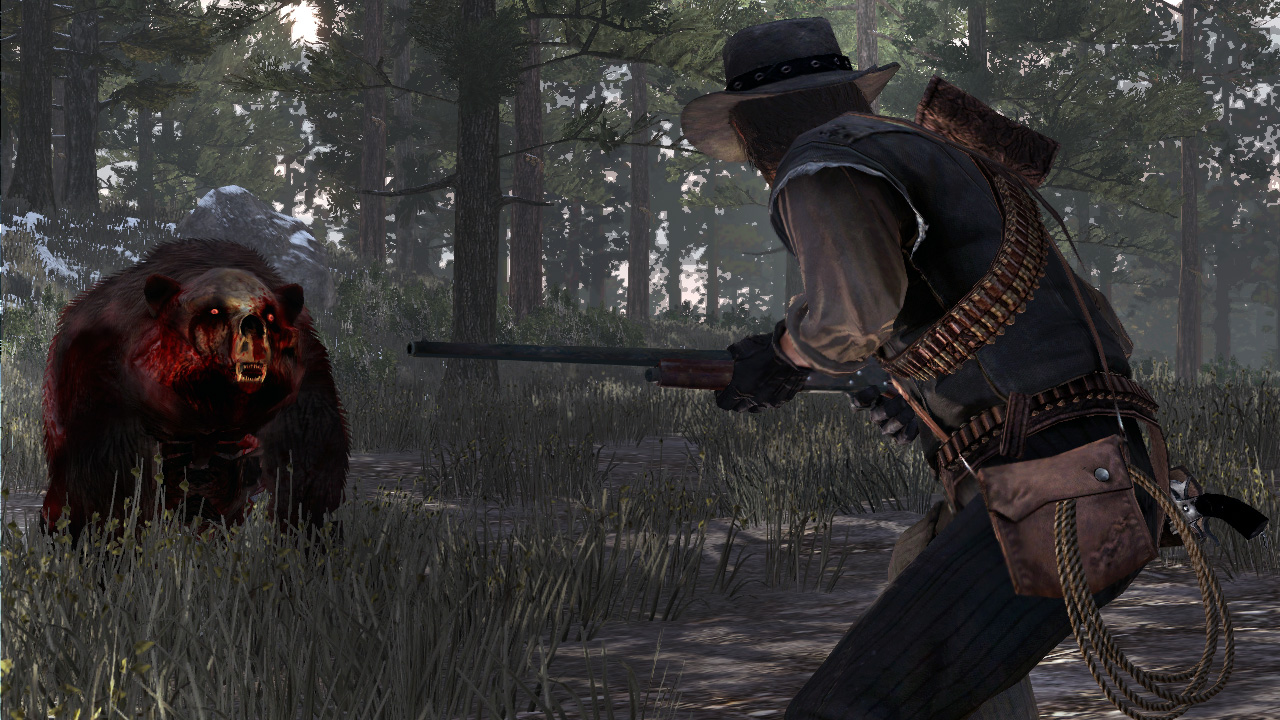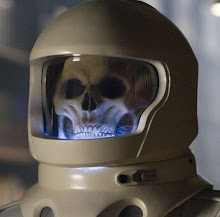Over the course of the past week I've been on a bit of a zombie high. I had a pretty vivid dream where I was stuck in the middle of a zombie apocalypse, and ever since then I've been obsessed. It's gotten to the point that I'm considering writing a comprehensive article, something along the lines of The Zombie Survival Guide, that talks about how to fight zombies and survive in an infected world. It might take a while for me to get that post completed, but just for today I instead wanted to talk about all of the different zombie-related sources of media I've been ploughing through in the last week or so. If I ever do write a proper zombie post, then consider this the 'required reading' material.
I'll start with films because, to be honest, that's probably my weakest area where zombies are concerned. I have yet to see any of Romero's famous films, and I haven't seen 28 Days Later or the sequel, either. I have watched I Am Legend, but I don't really count the villains there to be 'proper' zombies, so I won't talk about that one. In fact, the two zombie films that I have seen are both satires, rather than the real deal - Shaun of the Dead and Zombieland. Of course, that's not to say that they aren't both stellar examples of the zombie genre; in fact, being able to step back and view zombies with a critical, satirical eye enables the films to use them in new, interesting ways. Shaun of the Dead is usually billed as 'a romantic comedy, with zombies'; it's the story of slacker Shaun and his good-for-nothing best mate Ed, who get caught up in a zombie apocalypse that sweeps across Britain. This is one of my favourite films of all time, and it would take a full blog post to properly do it justice. Since this is more of an overview, I'll skip over some of its other fantastic qualities - Edgar Wright's direction, the stellar main cast, etc - and focus on the zombies. Probably one of the cleverest thing that Shaun of the Dead does is points out that many people, at the moment, are not so different from zombies already. The opening montage, as the camera pans through supermarkets and car parks, shows people going through the movements of their day to day routine, lifeless, eyes half-closed, stuck in the rut of modern society. Shaun's life is just the same, as he spends every day visiting the local corner shop, going to work and then having a drink at the local pub, the Winchester. He lives the life of a zombie, never doing anything new or exciting; it's only when the dead come to life that he, too, begins to live.
The same could be said of Columbus, the protagonist of Zombieland. As a social outcast, he was never really very attached to anyone, not even his own parents. When the film begins, he is out searching for his family in a post-apocalyptic USA. Over the course of the story he meets several other wandering kindred spirits; the slightly psychopathic Tallahassee and sisters Wichita and Little Rock. By the end of the film, Columbus discovers that he has found a family, albeit not the one he was searching for; he finally has friends, people he is close to. Both this film and Shaun of the Dead show how people can change for the better when the world around them starts to fall apart; this is a recurring theme in much of the zombie media I've experienced. The stories aren't so much about the zombies as the people living amongst them, trying to survive, and how living in an undead world can affect them.
A TV show for which that principle holds true is The Walking Dead. The show start off following Rick Grimes, a sheriff who goes into a coma after getting shot on the job. When he wakes up, he finds that America has undergone a catastrophic change, and has transformed into a barren, zombie infested wasteland. Rick eventually meets up with a larger group of survivors, and the focus of the show transitions to the survival of the group as a whole. This is an excellent example of that rule, that zombie stories are about the people and their reactions to the zombies, not the creatures themselves. As such, both the two films I mentioned and The Walking Dead choose not the focus on the grand scheme of things, and instead stick to their established microcosms. None of these stories are about saving the world, or defeating the zombies. They are about survival, on a personal, individual level. I think this is part of what makes zombie stories so alluring; very few other stories, outside the post-apocalyptic genre, are told in this way, with the characters main goal being survival rather than victory. Dead Set, again, is a mini-series which chooses not to show us the bigger picture of the zombie infestation, but instead lets us glimpse it through the eyes of a small, isolated group of characters (in this show's case, they are the fictional participants and crew of Big Brother, a reality show). While Dead Set, like Shaun of the Dead, has many brilliant moments and ideas that I won't be discussing today, the main point to take away from it is that zombie stories are better when so many of the real details are left to the imagination.
Of course, as with every rule, there are exceptions. World War Z is a novel by Max Brooks that tells the history of the decade-long 'zombie war', a planet-wide conflict that humanity eventually triumphed in. The novel gives us plenty of details, shows us the big picture, the grand scheme, all of the things I've just said good zombies stories don't usually do. But somehow, it still succeeds. This, in my opinion, is down to the book's format. It bills itself as 'an oral history of the zombie war', because it consists of a series of interviews with survivors of the conflict. Government officials in America, human traffickers in Tibet, foot soldiers in Russia and doctors in China; all of these and more are interviewed and have tales to tell. Over the course of the novel, a solid, global picture of the apocalypse is built up; but it is done through the tales of those isolated individuals that make the genre what it is. Brooks also wrote, perhaps unsurprisingly, The Zombie Survival Guide; less of a story, more of a practical manual to fighting and defending against the undead. While it doesn't really have a story, you can still interpret the books instructions in parallel to the other zombie stories I've discussed. By that, I mean that the book is not aimed at restoring the world to its former glory or completely wiping out the undead. It is instead focused on keeping people - individual characters, you might say - alive. Though indirectly, even The Zombie Survival Guide follows this pattern.
There are some sources for zombie stories that I won't discuss today, for various reasons. Firstly is Warm Bodies, a novel by Isaac Marion. While it is an absolute joy to read and an excellent zombie story in its own right, it differs greatly from most other stories of this type because it is told from a zombie's perspective. This, and the fact that it offers and somewhat alternative version of the undead to what we are used to, means that it probably won't play a major role if I ever get round to compiling a proper zombie survival 101 post, which I eventually plan to do (if you want to know more about Warm Bodies, you can read the review I did for it last Halloween). I'm also not going to talk much about video game zombies as, while my two main sources of experience in this medium - Call of Duty's 'zombies' mode and Red Dead Redemption's Undead Nightmare expansion pack - are both great fun, they aren't really very story-heavy (the single player campaign in Undead Nightmare has a good plot to it, to be fair, but it is essentially a riff off of the original RDR cast of characters, and not really to be taken seriously).
I won't reiterate my point about individual struggles for survival as a conclusion, because I've probably already run that into the ground, so instead I'll just say that I'll start work on a proper, zombie survival post in the near future, and I hope you'll enjoy it when it's done. Thank you very much for reading this little slog through the zombie stories of the world, and please do go and check out any of the sources I've mentioned. Feel free to comment on this post if you liked it, or follow my blog, or follow me on Tumblr or Twitter, and so on and so forth. Until the next time, thanks again for reading!




No comments:
Post a Comment